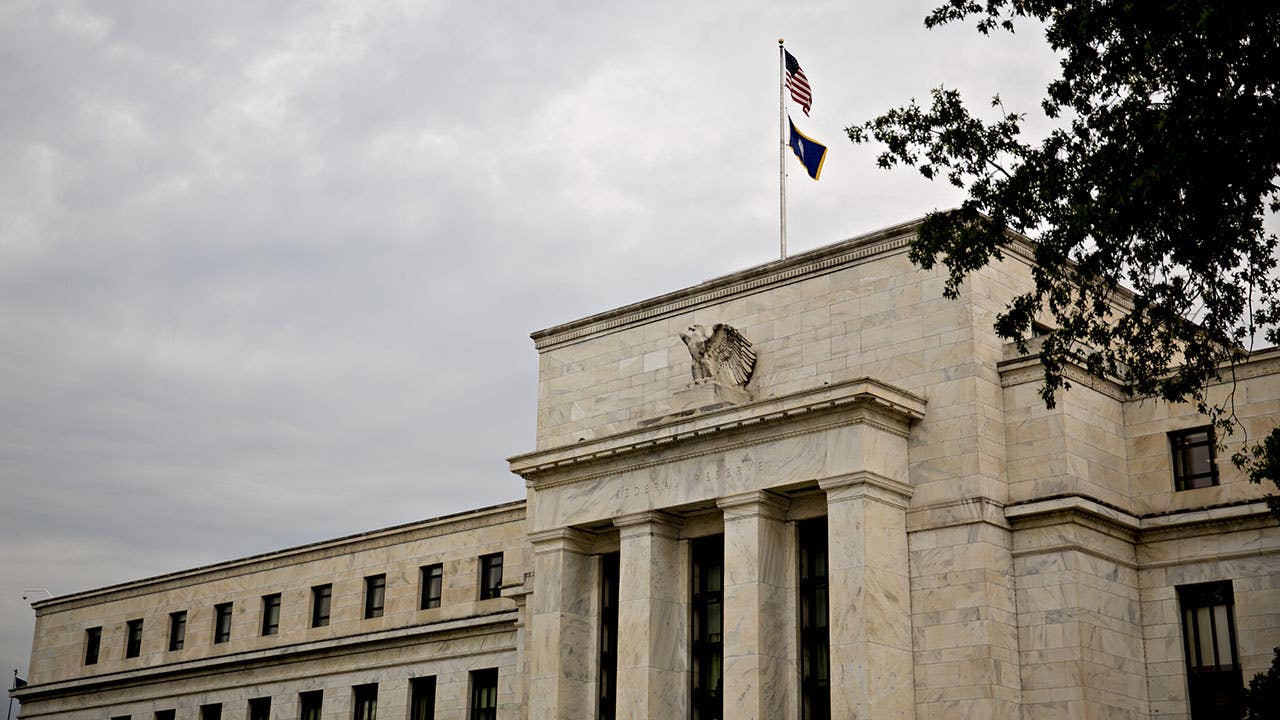Many popular travel credit cards come with flashy perks like airport lounge access and annual travel credits. The downside of these luxury perks is that they usually only come at the expense of an annual fee. And with that, you have the constant stress of making sure you’re using the perks enough to justify the fee.
Luckily, there are plenty of no-annual-fee travel credit cards. The benefits may not be as robust as you’ll find with premium cards, but you can get some travel-related perks without forking over an annual fee for the privilege.
Which no-annual-fee travel credit cards are the best? That really depends on your spending style, how you want to redeem your rewards and the travel benefits you are hoping to get. This guide highlights the best travel credit cards with no annual fee and everything you should consider before you choose one.
Capital One VentureOne Rewards Credit Card: Best for beginners
Why we picked it: The Capital One VentureOne Card is a great way to ease yourself into travel rewards. Earn 1.25X miles on all your spending, plus a 20,000-mile welcome bonus after spending $500 within the first three months. You can redeem your miles through Capital One’s rewards portal for travel, cash, gift cards and more. You’ll get the best value by redeeming for travel at a rate of 1 cent per mile or transferring them to travel partners.
Pros:
- Generous rewards rate
- Book travel directly and redeem points for statement credits
- Earn a bonus offer with a low minimum spending requirement
- No foreign transaction fees (applies to all Capital One credit cards)
- Comes with a 0 percent intro APR for purchases and balance transfers
- Ability to transfer points to Capital One travel partners
Cons:
- Lower earning rate than other Capital One travel credit cards
- Does not give access to Capital One lounge network
- No major travel perks included
Who should apply? Consider this card if you want some flexibility when it comes to redeeming your rewards. A lot of travel cards require you to book through their sites, but the VentureOne gives you the option of booking with a third party airline, hotel or travel service and later redeeming your miles for a statement credit to cover the cost.
Who should skip it? Capital One’s travel partners are good, but not great. If you’re looking for a credit card issuer with a fantastic list of airline and hotel transfer partners, you might be better off with a credit card from Chase (which has United, JetBlue and Southwest) or American Express (which has Delta).
Want to learn more? Read our full Capital One VentureOne Rewards Credit Card review.
Delta SkyMiles Blue American Express Card: Best for Delta Air Lines
Why we picked it: With the Delta SkyMiles® Blue American Express Card, you’ll earn 2X miles on dining worldwide and on Delta purchases, which includes booking flights, seat upgrades, in-flight purchases and more, plus 1 mile per dollar on everything else. You’ll also receive 20 percent back on each in-flight purchase you make with the card. The welcome offer is easily obtainable, too. Just spend $500 within the first three months of card membership and earn 10,000 miles.
Pros:
- Earn bonus miles on dining and Delta purchases
- Get a discount on in-flight purchases
- No foreign transaction fees
Cons:
- Frequent flyer perks are minimal (no free checked bags or priority boarding)
- The welcome offer may not be enough for a one-way flight
Who should apply? Consider the Delta SkyMiles Blue American Express Card if you want the chance to rack up miles in the Delta SkyMiles program but you don’t spend enough to justify paying an annual fee.
Who should skip it? If you travel with Delta frequently, you’ll benefit more from a Delta card that offers free checked bags, priority boarding, a better welcome offer and more miles for each dollar you spend.
Want to learn more? Read our full Delta SkyMiles Blue American Express Card review.
American Airlines AAdvantage MileUp Card: Best for American Airlines
Why we picked it: While you won’t get major frequent flyer benefits like a free checked bag or priority boarding, you do get the chance to rack up miles through credit card spending, including a boosted rewards rate at grocery stores and with American Airlines. Additionally, you get a 25 percent discount when you buy food or beverages in-flight and pay with your card.
Pros:
- Earn 2X miles on groceries and American Airlines purchases
- Get discounts on in-flight purchases
Cons:
- Welcome offer may not be enough for a one-way flight
- Frequent flyer perks are minimal (no free checked bags or priority boarding)
- Charges foreign transaction fees
Who should apply? Consider the American Airlines AAdvantage MileUp Card if you fly with American Airlines and spend on groceries frequently.
Who should skip it? If you fly with American or its Oneworld partners frequently, you may be better off with a co-branded credit card that offers frequent flyer perks like a free checked bag or priority boarding. For example, you can consider the Citi® / AAdvantage® Platinum Select® World Elite Mastercard®, which waives its $99 annual fee for the first year. Also, consider a different card if you travel internationally and want to avoid foreign transaction fees.
Want to learn more? Read our full American Airlines AAdvantage MileUp Card review.
Hilton Honors American Express Card: Best for frequent Hilton stays
Why we picked it: Travelers who frequent Hilton hotel locations will find a solid no-annual-fee option in the Hilton Honors American Express Card. This card offers a generous welcome bonus and a high rewards rate in several everyday spending categories.
Pros:
- Comes with complimentary Hilton Silver status
- Qualifies you for fifth-night free award stays with Hilton
- Earns a generous rewards rate on Hilton stays
- No foreign transaction fees
Cons:
- Minimal elite hotel benefits (e.g. no room upgrades or complimentary breakfast)
- Hilton points aren’t as valuable as other popular hotel points, so take the high rewards rates with a grain of salt
Who should apply? Anyone who stays at Hilton properties regularly and isn’t interested in premium perks will get a fair amount of value out of this card.
Who should skip it? Hilton travelers interested in better perks like annual resort credits and free weekend nights should consider other Hilton credit cards, including options that come with a higher tier of elite status, annual travel credits and other premium perks.
Want to learn more? Read our full Hilton Honors American Express Card review.
Bank of America Travel Rewards credit card: Best for Bank of America customers
Why we picked it: The Bank of America® Travel Rewards card is a good choice for earning travel rewards on each purchase, but it’s even better if you already do your banking with Bank of America. The card earns 1.5 points on every dollar spent, but you can bump up your rewards by 25 to 75 percent if you qualify for Bank of America’s Preferred Rewards program. To be a Preferred Rewards member, you must have at least $20,000 in an eligible Bank of America account, but the highest tier requires $100,000.
Pros:
- Earns a flat 1.5 points per dollar on all purchases
- Bank of America customers can earn 25 to 75 percent more rewards
- No foreign transaction fees
- Comes with an intro APR for purchases
- Rewards are flexible
Cons:
- High savings tiers required for bonus rewards
- No major travel perks
- To earn maximum rewards, you need to have $20k-$100k in a Bank of America account
Who should apply? This is a solid card for those who want to earn a flat rate of flexible points on each dollar spent. Bank of America customers with a considerable amount of savings will especially benefit due to the boosted rewards rates for Preferred Rewards customers.
Who should skip it? Skip this card if you want travel-related perks like free checked bags or elite status.
Want to learn more? Read our full Bank of America® Travel Rewards credit card review.
Chase Freedom Unlimited: Best for pairing with a premium travel card
Why we picked it: The Chase Freedom Unlimited® isn’t a travel rewards card. However, it is a no-annual-fee card that you can pair with Chase’s premium travel cards, the Chase Sapphire Preferred® Card or Chase Sapphire Reserve®, to boost your Chase Ultimate Rewards points by 25 percent to 50 percent toward booking travel. Here’s how it works: the points you earn with your Chase Freedom Unlimited go to the same pool as the points you earn with your Sapphire card. That way, you can earn boosted rewards in more categories and then redeem them for travel with boosted value through your Sapphire card.
Pros:
- Generous rewards on travel through Chase, drugstores and dining
- Additional 1.5 percent cash back on top of all purchases’ original cash back rate (on up to $20,000) for the first year (exclusive offer through Bankrate)
- Comes with an intro APR for purchases and balance transfers
- Trip cancellation and interruption insurance
Cons:
- Charges foreign transaction fees
- Points don’t transfer to Chase’s travel partners without a premium card
Who should apply? Consider this cash back credit card if you already have a Sapphire card and want to earn better-than-average rewards on dining and drugstore purchases.
Who should skip it? Skip this card if you need an option that doesn’t charge foreign transaction fees, or if you want travel perks that are specific to a frequent flyer or hotel loyalty program.
Want to learn more? Read our full Chase Freedom Unlimited® review.
Discover it Miles: Best for flexible redemptions
Why we picked it: Discover’s only travel card translates its low-cost, no-annual-fee approach to travel rewards. The Discover it® Miles is also a flat-rate card—it earns unlimited 1.5X miles on all purchases. Like all other Discover cards, the rewards you’ve earned within your first 12 months will be matched at the end of that year. For instance, spending $2,000 per month will translate into 36,000 miles within a year, which Discover will then double to 72,000 miles at the end of year one.
Pros:
- A generous flat rate of 1.5X miles on all purchases
- Discover matches your first-year earnings
- Comes with an intro APR for purchases and balance transfers
- Free FICO score
- No foreign transaction fees (this is true for all Discover credit cards)
- Redeem for flexible travel options
Cons:
- You have to wait a full year for the welcome bonus
- No travel perks
Who should apply? Consider the Discover it Miles if you want to earn flexible rewards you can redeem for any type of travel.
Who should skip it? Skip this card if you want travel-related benefits, or if you want to earn a generous sign-up bonus within the first few months of account opening.
Want to learn more? Read our full Discover it Miles review.
Compare the best travel credit cards with no annual fee
| TRAVEL CREDIT CARD | WELCOME OFFER | EARNING RATE |
|---|---|---|
| Capital One VentureOne Rewards Credit Card | 20,000 bonus miles when you spend $500 within three months of account opening | Unlimited 1.25 miles for each dollar you spend, 5X miles on hotels and rental cars booked through Capital One Travel |
| Delta SkyMiles Blue American Express Card | 10,000 bonus miles after spending $500 on purchases within three months of account opening | 2X miles on restaurants worldwide (including takeout and delivery in the U.S.) and on Delta purchases, plus 1X miles on everything else |
| American Airlines AAdvantage MileUp Card | 10,000 bonus American Airlines miles and a $50 statement credit when you spend $500 within three months of account opening | 2X miles at grocery stores and on American Airlines purchases, plus 1X miles on everything else |
| Hilton Honors American Express Card | 80,000 Hilton Honors Bonus Points after you spend $1,000 in purchases on the Card in the first 3 months of Card Membership | 7X Hilton Honors points on Hilton purchases, 5X points at U.S. restaurants, U.S. supermarkets and U.S. gas stations and 3X points on all other purchases |
| Bank of America Travel Rewards credit card | 25,000 bonus points when you spend $1,000 on purchases within 90 days of account opening | Unlimited 1.5 points for each dollar you spend |
| Chase Freedom Unlimited | Additional 1.5 percent cash back on top of all purchases’ original cash back rate (on up to $20,000) for the first year (exclusive offer through Bankrate) | 5% back on travel booked through Chase and Lyft rides (through March 2025), 3 percent back on dining and drugstore purchases and 1.5% back on other purchases |
| Discover it Miles | All miles earned within the first 12 months will be matched at the end of your first year | Unlimited 1.5X Miles for each dollar you spend |
How to choose a travel credit card with no annual fee
As you review the best travel credit cards with no annual fee, there are a number of important factors to keep in mind. Here’s everything you need to think about as you choose your next card.
- Consider your spending style and habits. Ideally, you’ll find a no-annual-fee travel card that’s suited to your budget. Look for a card that gives boosted points on the types of purchases you spend the most on each month. If your spending is pretty scattered, a flat-rate card may be best.
- Compare welcome offers. Earning rates are important, but you should also consider welcome offers. Many travel credit cards with no annual fee make it easy to earn $200 or more in rewards right off the bat.
- Pay attention to cardholder perks. Airline cards and hotel cards with no annual fee tend to offer in-flight discounts or automatic elite status, while some general travel credit cards in this niche offer travel insurance benefits.
- Look closely at redemption options. Be sure to select a travel credit card that lets you redeem your rewards for the type of travel you want. If you’re unsure, look for a flexible travel credit card that lets you redeem for travel statement credits after booking airfare, hotels, rental cars and other travel.
The bottom line
Many of the best travel credit cards charge annual fees, but there are plenty of good fee-free options, too. Find a card that works with your spending habits and your future travel plans to maximize each purchase, then work to pay your balances off each month so you don’t take on added costs in the form of interest payments.




